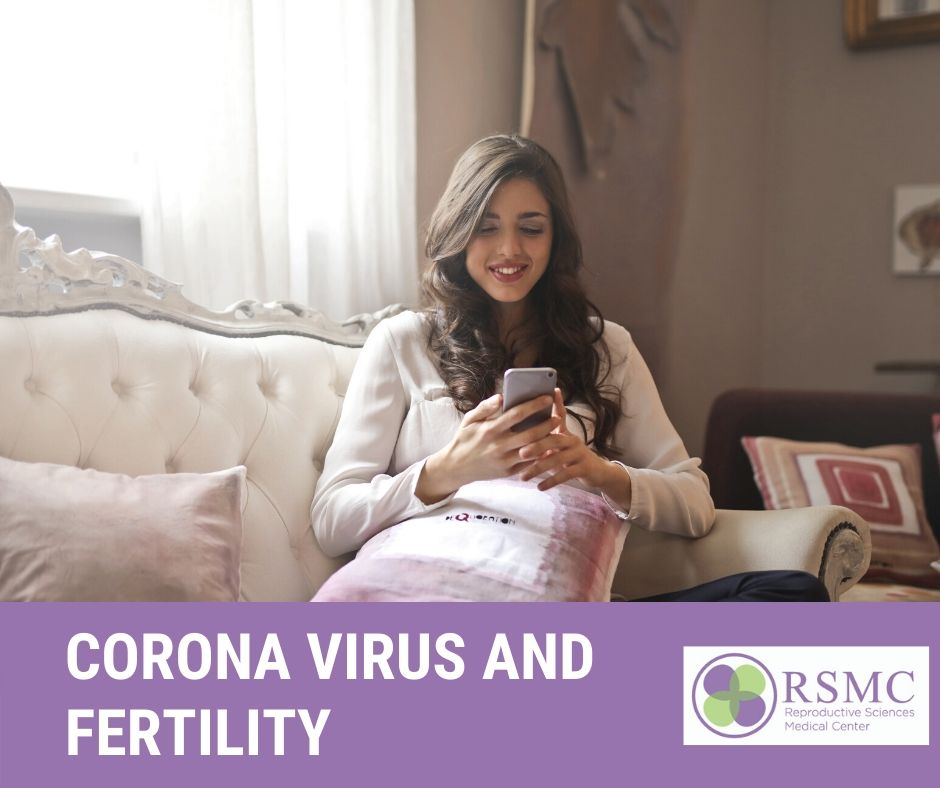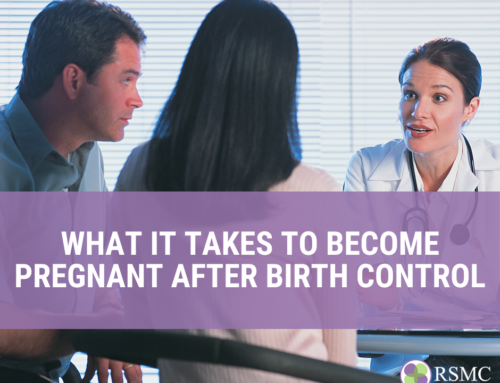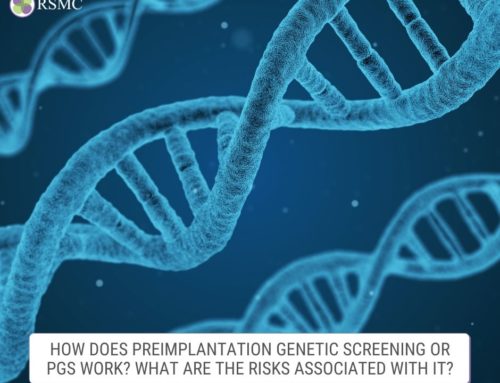Here’s what the Experts Know so far:
COVID-19 is an infectious disease caused by a novel coronavirus. It has dominated the headlines of nearly every major newspaper and media outlet in the past few weeks. We have seen how this disease affects various aspects of our daily lives. But the question remains – does the coronavirus outbreak have any impact on our fertility and reproductive health? This is what the health experts have to say about the outbreak of coronavirus/COVID-19 and its effects on our fertility, reproductive health, and pregnancy.
A Refresher on COVID-19:
Coronavirus refers to a large group of viruses that are common in humans and many animals. Although this rarely occurs, animal-borne coronavirus can infect humans and spread from one person to another. This is what the case was with MERS-COV, SARS-CoV and the new virus we are trying to tame. This new virus is known as “SARS-COV-2, and the disease it results in is named “coronavirus disease 2019” (COVID-19).
The Centers for Disease Control and Prevention (CDC) says that the coronavirus outbreak we are currently experiencing was first discovered in Wuhan, China. This disease has now spread in up to 100 countries, including the United States. On the 11th of March 2020, the World Health Organization (WHO) declared the coronavirus outbreak a global pandemic.
According to CDC reports, the risk of exposure to this deadly disease is very low for most people. Although, it is higher for those in the following groups:
- Elderly people or those with pre-existing medical illnesses.
- People who came back from countries with ongoing community spread.
- People who have been in close contact with infected persons.
- Healthcare providers in contact with people with the virus.
- Those who are living in places where there’re high incidences of the disease.
You may experience symptoms such as fever, shortness of breath, and cough about 2 to 14 days after exposure. In such cases, you might have contracted the virus. It is important for you to contact your doctor as soon as possible if you are having any of these symptoms.
Will contracting Coronavirus/COVID-19 now affect my Fertility in the Future?
Studies are still going on in this area. Presently, no research has indicated that the coronavirus has any significant impact on fertility. The fears of coronavirus have made some people consider egg freezing. However, there’s no need to worry if you have not contracted the virus. So, there is no medical justification to go for egg freezing as a “preventive measure.”
Should you Stop trying to Conceive Pregnancy due to Coronavirus/COVID-19?
There is no medical reason to stop trying to conceive if you haven’t contracted the virus. However, you may want to change your plans due to some have emotional, mental, and logistic reasons. Delaying pregnancy is a personal decision. We recommend that you consult your physician for specific recommendations.
If you have already contracted coronavirus/COVID-19, the society for assisted reproductive technology (SART) recommends that you avoid conceiving pregnancy or any other fertility treatment at the moment due to Corona Virus/COVID-19. They also suggest to wait until you have fully recovered before trying to conceive. This guideline persists for both conceiving through natural means and with assisted reproduction technology.
How can Coronavirus/COVID-19 affect Pregnant Women & Fertility?
The WHO says that pregnant women don’t seem to be at a higher risk for illness related to coronavirus on account of fertility. Only 1 out of 100 infected pregnant women experienced serious illnesses that needed urgent medical attention.
CDC is yet to have any information on the side effects of coronavirus/COVID on pregnancy with the condition. However, it states that pregnancy loss, including stillbirth and miscarriage, has been seen in cases of infection with some other coronaviruses like MERS-CoV and SARS-CoV during pregnancy.
CDC also says that it’s still unknown whether an infected woman carrying a pregnancy can pass on the coronavirus/COVID-19 to her fetus via other routes of vertical transmission before, during, or after childbirth.
So, if you have COVID-19, could you transmit it to your baby?
Research took place with 9 infected pregnant women in China. All these women recovered fully from the illness and gave birth to live babies. The babies were born without any evidence of passing the virus to their babies. Moreover, scientists could not find the virus in samples of throat swabs, cord blood, amniotic fluid from the new baby, or breast milk.
However, the coronavirus infection was recently discovered in a newborn baby. This indicates that “vertical transmission” (that is, the passage of the virus from mother to child) may be possible.
Therefore, if you are already pregnant or considering getting pregnant, SART recommends that you avoid unnecessary travel to places with high incidences of the COVID-19.
Considering or already pursuing IVF, IUI, or egg or embryo freezing?
On the 17th of March 2020, the American Society for Reproductive Medicine (ASRM) put out some clinical recommendations. On account of the coronavirus outbreak, they recommend that the fertility clinics should:
- Not initiate new fertility treatment cycles until the coronavirus outbreak is suppressed, unless it’s urgent. These include IVF, IUI, ovulation induction, and egg or embryo freezing
- Cancel all embryo transfers.
- Keep attending to people who are currently undergoing treatment cycle or urgently need ovarian stimulation or cryopreservation (egg or embryo freezing).
- Reschedule elective surgeries and non-urgent diagnostic procedures to a later date.
- Prefer telehealth to in-person contact.It is very important to wait before pursuing ART if you are at a higher risk of experiencing complications that would need more care. Also, the SART says that anyone who is actively pursuing ART and meet the criteria for the diagnosis of COVID-19 should consider cryopreservation (egg or embryo freezing). The patient should wait until they are infection-free before doing an embryo transfer.
It is possible that you are pursuing IVF, IUI, or any other assisted reproductive technology and have been diagnosed with the coronavirus disease. In such a case, you need to talk to your fertility doctor as soon as possible and follow their recommendations precisely.
The Biggest Takeaways for Coronavirus & Fertility:
Research is still going on. No studies have suggested that contracting the coronavirus/COVID-19 disease now will make it more difficult for conceiving pregnancy in the future.
- Presently studies indicate women carrying pregnancy do not seem to be at a higher risk of contracting the deadly virus.
- There’s no medical reason why you should not proceed with your plans to become pregnant if you don’t have the COVID infection. However, it may be more difficult for you to access medical care over the next few months. So, you may want to wait until everything calms down before getting pregnant.
- You may not have contracted coronavirus and are actively pursuing assisted reproductive technology. Regardless of that, it is recommended that fertility clinics defer all elective procedures. These include IVF, IUI, and non-urgent cryopreservation (egg or embryo freezing).
- People who meet the diagnostic criteria for coronavirus are advised to avoid becoming pregnant. They should wait until the illness dies down before going for assisted reproductive technology.
Conclusion
If you have any questions regarding becoming pregnant or your fertility and the Coronavirus/COVID-19, RSMC is here to help. Please feel free to reach out to us at (858) 436-7186. You can also visit our website at www.fertile.com where you can schedule a consultation that can also be done via phone. Our consultation currently includes a ultrasound and AMH testing.























